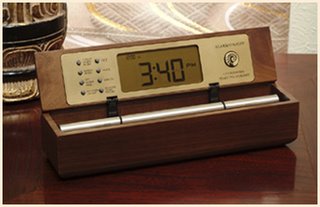
meditation trains your brain
Using a magnetic resonance imaging (MRI) machine, Eileen Luders, a re-searcher in the Department of Neurology at the University of California Los Angeles School of Medicine, looks for evidence that meditation changes the physical structure of the brain. Until recently, this idea would have seemed absurd. “Scientists used to believe that the brain reaches its peak in adulthood and doesn’t change—until it starts to decrease in late adulthood,” Luders says. “Today we know that everything we do, and every experience we have, actually changes the brain.” Indeed, Luders finds several differences between the brains of meditators and nonmeditators. In a study published in the journal NeuroImage in 2009, Luders and her colleagues compared the brains of 22 meditators and 22 age-matched nonmeditators and found that the meditators (who practiced a wide range of traditions and had between 5 and 46 years of meditation experience) had more gray matter in re-gions of the brain that are important for attention, emotion regulation, and mental flexibility. Increased gray matter typically makes an area of the brain more efficient or powerful at processing information. Luders believes that the increased gray matter in the meditators’ brains should make them better at controlling their attention, managing their emotions, and making mindful choices.
Why are there differences between the brains of meditators and nonmeditators? It’s a simple matter of training. Neuroscientists now know that the brain you have today is, in part, a reflection of the demands you have placed on it. People learning to juggle, for example, develop more connections in areas of the brain that anticipate moving objects. Medical students undergoing periods of intense learning show similar changes in the hippocampus, an area of the brain important for memory. And mathematicians have more gray matter in regions important for arithmetic and spatial reasoning.
More and more neuroscientists, like Luders, have started to think that learning to meditate is no different from learning mental skills such as music or math. Like anything else that requires practice, meditation is a training program for the brain. “Regular use may strengthen the connections between neurons and can also make new connections,” Luders explains. “These tiny changes, in thousands of connections, can lead to visible changes in the structure of the brain.” Those structural changes, in turn, create a brain that is better at doing whatever you’ve asked it to do. Musicians’ brains could get better at analyzing and creating music. Mathematicians’ brains may get better at solving problems. What do meditators’ brains get better at doing? This is where it gets interesting: It depends on what kind of meditation they do.
Over the past decade, researchers have found that if you practice focusing attention on your breath or a mantra, the brain will restructure itself to make concentration easier. If you practice calm acceptance during meditation, you will develop a brain that is more resilient to stress. And if you meditate while cultivating feelings of love and compassion, your brain will develop in such a way that you spontaneously feel more connected to others.
The Zen Meditation Timer and Clock’s long-resonating Tibetan bell-like chime makes waking and meditating a beautiful experience – its progressive chimes begin your day with grace.
adapted from Yoga Journal, By Kelly McGonigal

Digital Zen Alarm Clock, a meditation timer and progressive alarm clock
Now & Zen’s Meditation Timer Shop
1638 Pearl Street
Boulder, CO 80302
(800) 779-6383
Posted in Bamboo Chime Clocks, intention, Meditation Timers, Meditation Tools, mindfulness practice, Now & Zen Alarm Clocks, Zen Timers